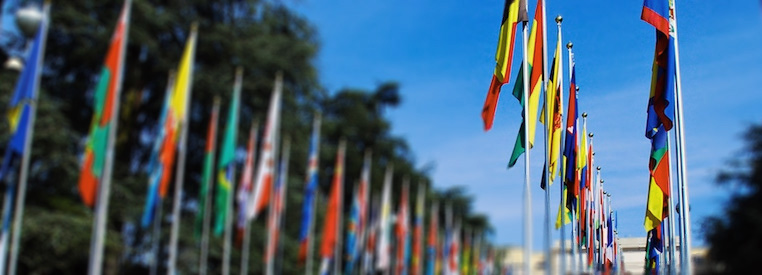Child soldiers: trial as deterrent?

Pierre Holtz, UNICEF CAR
Robert Marquand of the Christian Science Monitor poses a question on the Lubanga trial, still underway at The Hague since it opened nine months ago: “Is an army of child soldiers a war crime?”
Legal experts note that international justice is evolving. Rape was added as a war crime in the 1990s. Now, with the addition of child soldiers, the law has been refined further. The problem has captured the public imagination, helping to bring it before the court, according to analysts at the International Bar Association (IBA) meeting in Madrid this week.
In this vein, some legal experts say prosecutions through the International Criminal Court (ICC) of recruiting child soldiers are acting as a good deterrent to the practice. With increasing awareness of the use of child soldiers and the concurrent decline of such cases, the correlation may well be true, but establishing a causal relationship is a tougher one to prove. The truth remains that children are still taking up arms — voluntarily or otherwise — in such places as Uganda, Sudan, Sri Lanka, Burma, the Congo and Cote d’Ivoire.
Marquand quotes IBA executive director Mark Ellis: “The substantive law on child soldiers was created quickly by the courts, in much the same way rape was, coming out of the Rwanda and Yugoslavia tribunals. [...] Rape has been around for a long time. But as a crime of war it was not elevated or prosecuted until the 1990s.”
And why are children classified as under 15 years of age? Why not 18? Age, in fact, has proven to be a bottleneck in prosecuting Congolese warlord Thomas Lubanga:
[...] The difficulty of proving a soldier’s age, his relationship to Lubanga, and that fact that Lubanga knew of the practice – as a commander who was often removed from the front line – has prevented a legal slam dunk. Some analysts think the charges against him may be expanded to include sexual slavery, not only because the trial itself has brought out new facts that victims have petitioned as prosecutable but because they add provable culpability. The Hague trial judges were not unanimous in the decision to expand the charges, and the move also troubles some legal scholars.
More here.
Comments
Leave a Reply
